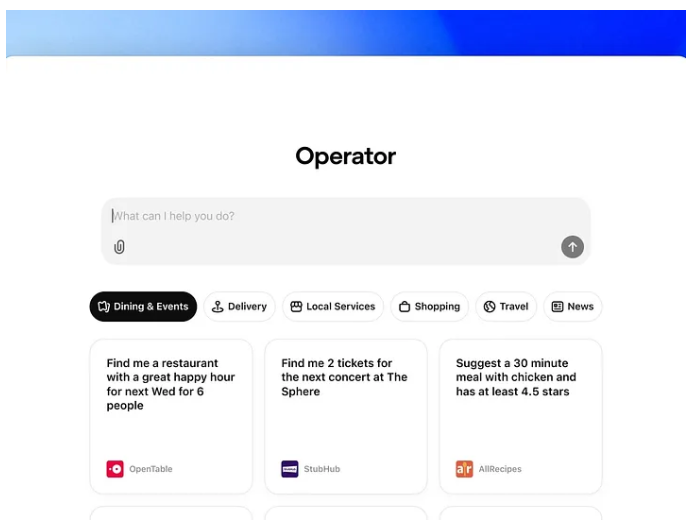Are You Moving Ahead in Your Career? 6 Signs That You’re Not
Are You Moving Ahead in Your Career? 6 Signs That You’re Not
Have you ever found yourself questioning your career trajectory? Do you feel stuck, demotivated, or unsure if you’re truly progressing in your professional life? You’re not alone. Many professionals experience moments of doubt about whether they are moving forward or simply treading water. Career advancement is more than just climbing the corporate ladder — it’s about growth, learning, recognition, and fulfilment.

In this blog, we’ll explore six critical signs that might indicate you’re not moving ahead in your career. By rekindling these signs and taking actionable steps to address them, you can reignite your professional journey and achieve your desired success.
Sign 1: Lack of Skill Development
You’re Not Learning Anything New
Continuous learning is not just useful but indispensable for career progression in today’s dynamic work environment. Without new learnings, we risk stagnating in our careers and becoming increasingly stale compared to others who are constantly trying to improve themselves. Below are a few indications that the development of skilled-based competencies is absent.
1. No New Training Opportunities:
- If your employer is not providing opportunities for professional development, such as workshops, seminars, or training sessions, it may be a sign that your career is not progressing.
- This lack of investment in your growth can lead to feeling undervalued and unchallenged.
2. Not Keeping Up with Industry Trends:
- Failing to stay updated with the latest developments in your field can make you less relevant in the job market.
- Industry trends often dictate new skills and technologies that are in demand, and not being aware of these can hinder your ability to adapt and innovate.
3. Feeling Like You’re Doing the Same Tasks Repeatedly:
- If your job has become too routine and you’re not being challenged with new responsibilities or projects, it can lead to boredom and dissatisfaction.
- This repetition can also mean that you’re not developing new skills or perspectives, which are crucial for career advancement.
Actionable Advice
To overcome this stagnation, consider the following strategies:
- Platforms like Coursera, LinkedIn Learning, and Udemy offer a wide range of courses that can help you acquire new skills relevant to your industry.
- Specialize in emerging technologies or soft skills that are in high demand, such as data analysis, digital marketing, or project management.
- Networking can lead to new opportunities, collaborations, and access to knowledge that might not be available otherwise.
- Use platforms like LinkedIn to connect with professionals in your field and stay updated on industry news.
Sign 2: No Increase in Responsibility or Scope
Your Role Remains Static
A static role can lead to boredom and a lack of motivation. If you’re not being challenged or considered for leadership roles, it might be a sign that your career is not advancing. Signs include:
1. No New Projects or Challenges
If you notice that your daily tasks have become repetitive and there are no new projects on the horizon, it’s a clear indication that your role may not be evolving. Engaging in the same activities day in and day out can stifle creativity and limit your professional growth.
2. Not Being Considered for Leadership Roles
Being overlooked for leadership opportunities can be particularly disheartening. If you believe you have the skills and experience necessary to take on more significant responsibilities but are consistently passed over for promotions or leadership roles, it may signal a lack of recognition of your potential.
3. Consistently Being Assigned Routine Tasks
If you find yourself repeatedly assigned the same routine tasks without any variation or challenge, it can lead to feelings of frustration. While every job has its mundane aspects, a lack of diversity in your responsibilities can hinder your development and make it difficult to demonstrate your full range of capabilities.
Actionable Advice
- Express Your Interest in Taking on More Responsibility to Your Manager
Open communication with your manager is crucial. Schedule a one-on-one meeting to discuss your career aspirations and express your desire for more challenging projects or responsibilities. - If you feel that there are gaps in current projects or processes within your team or organization, consider proposing new initiatives that could benefit the company. This could be anything from streamlining workflows to introducing innovative ideas that align with company goals.
Sign 3: Minimal or No Feedback
You’re Operating in a Feedback Vacuum
Feedback is essential for career growth, as it helps you understand your strengths and areas for improvement. A lack of feedback can leave you uncertain about your performance. Signs include:
1. No Regular Performance Reviews:
Many organizations conduct performance reviews to assess employee progress and set future goals. If these reviews are infrequent or nonexistent, it can indicate a lack of engagement from management regarding your development. Regular check-ins are crucial for understanding how your work aligns with company objectives and where you can improve.
2. Lack of Constructive Criticism or Praise:
Constructive criticism is vital for growth; it highlights areas where you can enhance your skills or change your approach. Conversely, praise reinforces positive behaviour and boosts morale. If you’re not receiving either, it may suggest that your contributions are going unnoticed or unappreciated, leaving you feeling undervalued and uncertain about your role.
3. Feeling Unsure About Your Performance:
When feedback is minimal, it’s common to feel lost regarding how well you’re doing in your job. This uncertainty can lead to anxiety about your performance and hinder your ability to take initiative or pursue new opportunities within the organization.
Actionable Advice:
- Proactively Ask for Feedback from Your Manager or Peers:
Take the initiative to seek feedback regularly. Schedule one-on-one meetings with your manager to discuss your performance and ask specific questions about areas where you could improve. - Use Feedback Sessions as Opportunities to Discuss Career Goals and Growth: When you do receive feedback, treat it as an opportunity to have deeper conversations about your career aspirations. Use these sessions to express your interest in advancing within the company and ask for guidance on how to achieve those goals.
Sign 4: Lack of Networking and Mentorship
You’re Isolated in Your Professional Bubble
In today’s interconnected world, networking and mentorship play a crucial role in career advancement. They provide not only opportunities for collaboration and learning but also avenues to gain insights into industry trends and best practices. If you find yourself isolated in your professional bubble, you may be inadvertently hindering your growth. Here are some signs that indicate a lack of networking and mentorship:
1. Not Attending Industry Events or Conferences:
If you’re not participating in industry-related events, you miss opportunities to meet peers, learn about new developments, and exchange ideas. These gatherings are often where new collaborations begin and where you can gain visibility within your field.
2. Lack of a Professional Network:
A robust professional network is essential for career growth. If you haven’t made an effort to connect with colleagues, industry leaders, or alumni from your educational background, you may be limiting your access to job opportunities, referrals, and insider knowledge.
Actionable Advice
- Use LinkedIn by Creating a compelling LinkedIn profile that showcases your skills and accomplishments. Make it a priority to attend conferences, workshops, webinars, and local meetups related to your field. These events are excellent opportunities to meet new people, learn from experts, and stay updated on industry trends.
- Identify Potential Mentors by looking for individuals whose careers you admire or who have expertise in areas where you seek growth. When approaching a potential mentor, be clear about why you’re seeking their guidance and what specific areas you’d like help with.
Sign 5: No Salary or Promotion Progression
Your Compensation Isn’t Reflecting Your Value
A stagnant salary or lack of promotions can be a significant indicator that your career is not progressing as it should. When your compensation fails to increase over time, it can lead to feelings of frustration and undervaluation. Here are some detailed signs that may suggest you are experiencing stagnation in your salary and promotion potential:
1. No Salary Increases or Promotions Despite Good Performance:
If you consistently receive positive performance reviews but do not see any corresponding increases in your salary or opportunities for advancement, this could indicate a lack of recognition for your contributions. This disconnect can be demoralizing, especially when you know you are delivering value to the organization.
2. Feeling Underpaid Compared to Industry Standards:
If you have done your research and discovered that your salary is below the average for similar roles in your industry, it’s a clear sign that you might be undervalued. Being underpaid not only affects your financial well-being but can also diminish your motivation and job satisfaction.
Actionable Advice:
- Understanding the market value for your role is crucial. Use resources like Glassdoor, PayScale, or industry reports to gather data on salary ranges for similar positions in your field and geographic area. This information will empower you to advocate for yourself effectively during discussions about compensation.
- For raises/promotions, show accomplishments: projects, new skills, positive impact (team/company). Use metrics (revenue, savings, efficiency) to prove your value.
Sign 6: General Dissatisfaction and Lack of Motivation
You’re Feeling Unfulfilled and Burnt Out
Feeling unfulfilled or burnt out is one of the most telling signs of career stagnation. When you find yourself in this state, it can have a profound impact not only on your work performance but also on your overall well-being. The emotional and psychological toll of dissatisfaction can lead to decreased productivity, increased stress levels, and even physical health issues. Here are some common signs that indicate you might be feeling unfulfilled in your career:
1. Dreading Going to Work:
If you wake up each day with a sense of dread about heading to the office or logging into your remote job, it’s a clear indicator that something is amiss. This feeling can stem from a lack of interest in your tasks, a toxic work environment, or a disconnect between your values and the company’s mission.
2. Lack of Enthusiasm for Projects:
When you no longer feel excited about the projects you’re working on, it can be a sign that you’re stuck in a rut. Enthusiasm is often fueled by passion and interest; if these elements are missing, it may be time to reassess your current role.
Actionable Advice
- Take some time for self-reflection to identify what specifically is making you unhappy in your career. Is it the nature of your work, the company culture, or perhaps a lack of growth opportunities? Journaling your thoughts can help clarify your feelings.
- Consider seeking feedback from trusted colleagues or mentors who can provide an outside perspective on your situation.
- If possible, express interest in taking on new projects that align more closely with your interests or strengths. This could involve volunteering for cross-departmental initiatives or asking for assignments that challenge you.
- Establish short-term and long-term career goals that excite you. Whether it’s mastering a new skill, earning a certification, or aiming for a promotion, having clear objectives can reignite your motivation.
- If your organization offers job rotation programs or job shadowing opportunities, take advantage of them. Experiencing different roles within the company can provide fresh perspectives and reignite your enthusiasm.
Ready to Take Your Career to the Next Level?
Feeling like you’re going in circles with no real growth? It’s time to break free from stagnation and take control of your career. Whether it’s upskilling, networking, or landing a high-paying job, the right opportunities can change everything.
At MyNextDeveloper, we connect top-tier software engineers with innovative companies that truly value talent and career progression. Don’t settle for less — get the role and challenges you deserve.
Visit our website today and take the next step in your tech career!





